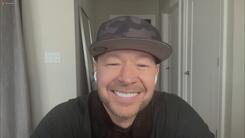On her hit TV series *Dr. G: Medical Examiner,* Dr. Jan Garavaglia, a real-life CSI detective for the human body, uncovers why people have passed away. "A lot of the loved ones see me as the last physician for their loved one and I take that with a lot of respect in seeing those people and what I tell them," says Dr. G, who is also the chief medical examiner for Orange-Osceola Counties, Fla. "It's made me realize how precious life is and we [shouldn't] take it for granted because it can turn on a dime." And what a tragedy it would be to let life slip away due to a common risk that could easily be avoided. In her new book, *How Not to Die,* Dr. G shares tips that could literally save your life. Get some of her best tips here:
**Car Safety** "The number one cause of death, and I'm talking *all* deaths between the ages of 1 and 44 are accidents," Dr. G says. "What is the number one accident? Motor vehicle accidents." The top precaution is to wear your seat belt correctly. "Always use the shoulder harness if you're going to use the lap belt. Never use them separately." Dr. G also suggests keeping the windows up. "When you go into a rollover your head can go out. Some of the worst though are when the window is half open, because some really devastating injuries can occur. So I play it safe. I roll it up."
**Lake Safety** "We've had a couple cases in Florida with a lake where the temperature gets high enough and the amoebas start getting active," she says. "This only happens really in the summer when the water gets to about 80 degrees. The amoebas actually -- when they go in the water -- can go up their nose and into the brain. A rare, rare thing to occur, but it's lifesaving just to use the nose clips."
**Medicine Cabinet** "They estimate 1.5 or 1.7 million cases of drug interactions of people who are either sickened or injured or die from either taking the wrong medicine or taking too much medicine," says Dr. G. "Ten percent of that is probably just due to the fact that the names of some of these medications are so close." While these mistakes are rare, Dr. G recommends opening up prescriptions at the pharmacy to confirm it is the correct drug.


"How Not To Die"

Q&A with Organizational Pro Peter Walsh + Dermatologist Shares A…

Actor Hank Azaria + Freezer Meals + Artichokes 2 Ways with Rach

See Inside Barbara Corcoran's Stunning NY Apartment + It's Steak…

How to Make Chicken and Lobster Piccata | Richard Blais

Donnie Wahlberg Spills Details About NKOTB's First Ever Conventi…

Donnie Wahlberg + Jenny McCarthy Say Rach Is Such a "Joy" + Look…

The Best Moments From 17 Seasons of the Show Will Make You Laugh…

How to Make Crabby Carbonara | Rachael Ray

Rach Chats "Firsts" In Flashback From Our First Episode Ever In …

How to Make Apple-Cider Braised Pork Chop Sandwiches with Onion …

Rach's Chef Pals Say Goodbye to Show in Surprise Video Message

How to Make Sesame Cookies | Buddy Valastro

How to Make Tortilla with Potatoes, Piquillo Peppers and Mancheg…

How to Make Shrimp Burgers | Jacques Pepin

How to Make Spanakopipasta | Rachael Ray

Andrew McCarthy Chokes Up Discussing Emotional Trip to Spain wit…

Celebrity Guests Send Farewell Messages After 17 Seasons of the …

Celebrity Guests Send Farewell Messages After 17 Seasons of the …

Andrew McCarthy Teases Upcoming "Brat Pack" Reunion Special











